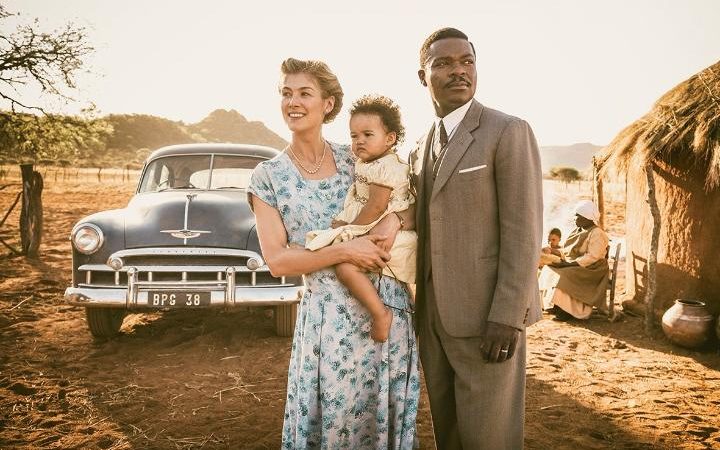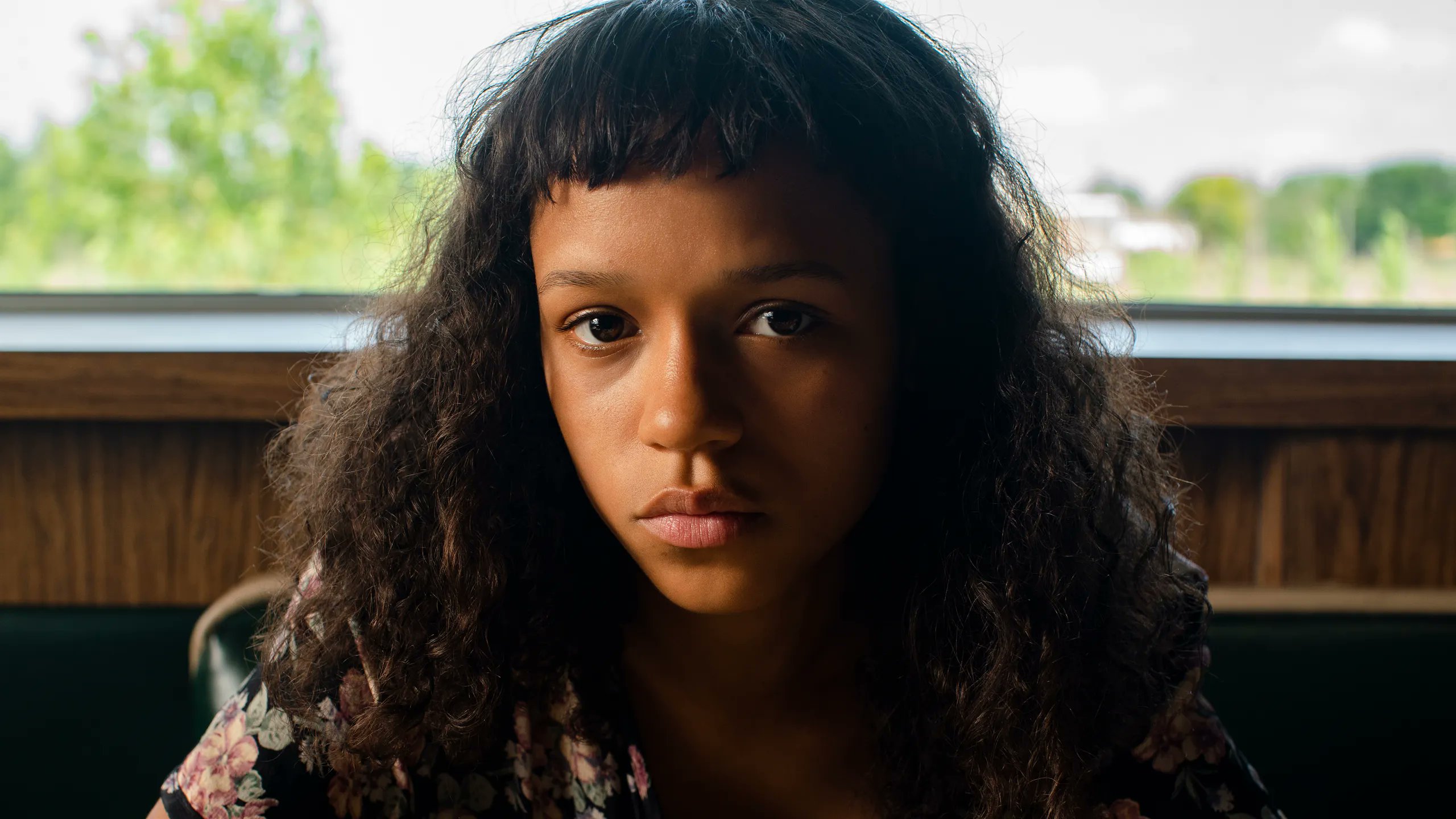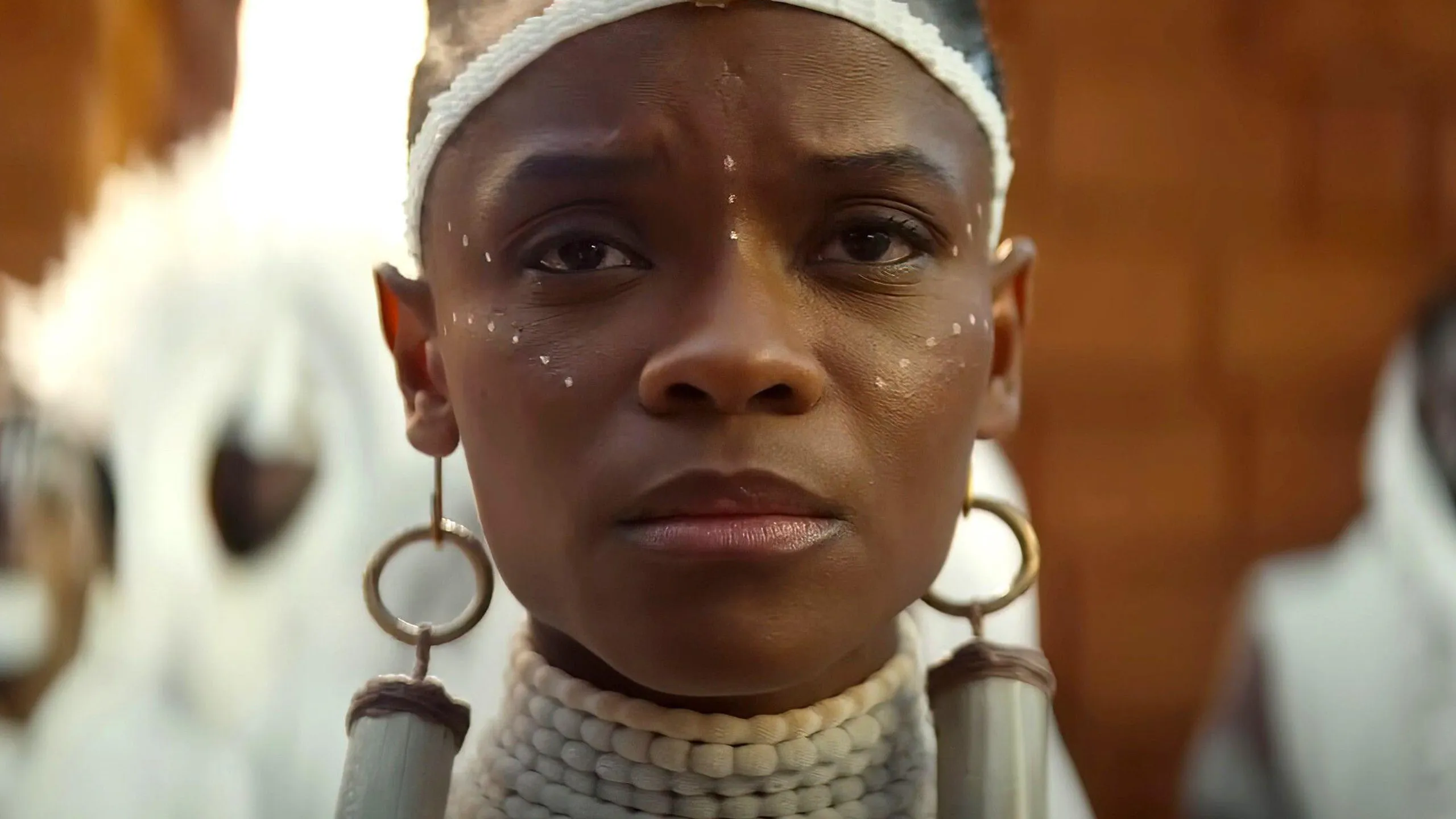
The characters and scenarios in Amma Asante’s A United Kingdom are like ghosts – they’re long gone, long dead, and yet there is still a resonance and urgency to them that keeps pushing through to our subconscious, never letting us quite forget. Regardless of the merits of her films themselves, Asante is a clever filmmaker, a filmmaker with a plan. At the BFI’s recent Black Star symposium, she told the audience that she deliberately makes period films about old issues in order to show how they reflect on our own contemporary problems with race, gender, love and money. Gone is the period dress of Belle, but there are still hoards of mixed race girls out there trying to find their place in society. And while in 2016 one would hope that an interracial couple could walk down the street holding hands without a second glance, Asante’s true story of the heir to the throne of Bechuanaland (now Botswana) and his white wife still makes us think about those of us that must fight for what we want and who we love.
The love worth fighting for, in the case of A United Kingdom, is that of white shopkeeper’s daughter Ruth, in a modest turn by Rosamund Pike and African heir Seretze Khama, played by David Oyelowo; another strong performance to add to his list. Their love, as seen in the opening scenes of the film, is not a fierce, passionate one, but one where each are equal and share love deeply in their own restrained way. Oyelowo and Pike are more than capable of fulfilling their roles, the love story is believable and this may not have been the case had other actors been given the part. While the couple face issues from Ruth’s family and not-so-friendly locals of alleged “melting pot” London, this is a completely different kettle of fish to the reaction that they receive not just by Seretze’s tribespeople but by the British government that still rule and impose apartheid in Africa. From this point, the film becomes less about the couple’s relationship, but more of a fight for it, and one to be allowed to love and reign freely.
The highest praise that can be given to A United Kingdom is that it’s a Trojan Horse of a film – a social issues film focused on race that comes wrapped up in the form of a BBC prestige drama. It sounds like an insult, but it’s really not meant to be. Asante’s last film, Belle, was a vision in pastels, yet still contained somewhat of an independent edge. This isn’t the case with A United Kingdom. It’s an extremely smooth, professional and polished film, (a blessing and a curse, but more on that later) and shows how far Asante has come in her career. After all, being a black female filmmaker is a many edged sword. Make a low-budget, shaky film, and you’ll be derided for your lack of budget and vision. Make independent films that catch attention and allow you complete access to your vision and the money to make it, and there are people that will say you’ve sold out. For I’m sure there are critics lining up to say that Asante has “sold out” with this film, one that’s likely to debut in as many multiplex cinemas as it will small one screeners.
But I refuse to see it this way. Independent cinema is littered with black female directors – okay, not as many as we’d like, but there are still some out there. But how many black female directors are there that appeal to both the mainstream and the independent? How many who make films with vision so self-assured that, maybe for a second, you could completely forget and believe that a white male director well into his career made it.
I say that A United Kingdom is a Trojan Horse, because it’s a film that you could take your nan to, but the film also makes some important points, and makes you really feel for each side of the dilemma. Thanks to Pike and Oyelowo’s performances, we want the couple to stay together, but thanks to strong supporting roles, we’re also able to understand why the African people might be a little resentful towards a white woman strolling into their homeland and ruling it. One of the most searing scenes in the film – that of Seretze’s sister and aunt begging Ruth to leave him and return home to let a native woman of the land rule by his side – hurts even more coming after the reveal that 94% of black women (many of whom, one presumes, did so resentfully according to what I’ve seen on social media) voted for Hilary Clinton in the US election. Asante makes sure that the anger of these women in the film seems logical rather than irrational. We see that one decision to love unconditionally spawns a number of repercussions.
We aren’t made to hate the Africans in the film, but it’s made unequivocally clear that we are supposed to hate the English government, and that’s where the cracks begin to show. Not because we shouldn’t hate them – the English government, headed up by Jack Davenport and Tom Felton, are quite rightly painted as racist colonizers set to preserve the reputation of Her Maj in the colonies and stop the film’s central romance in its tracks. But Davenport and Felton’s characters are also pantomime villains – Felton is one move away from twiddling his new “grown-up” moustache, and Davenport is in a malevolent mode reminiscent of his Pirates of the Caribbean franchise performance. I feel this is all part of the BBC prestige drama mode of A United Kingdom – perhaps Asante anticipates an audience who will need to have things broken down into right and wrong for them?
Another thing that disappoints me about the film is that while it’s sold in the film’s promotional materials as being a sweeping, all-encompassing romance about how love can triumph oppression, we actually see more oppression than love in the film. Much of the film sees Oyelowo and Pike, strongest in this film together, facing separate trials and tribulations. I know that this is true of the real story of Khama and Williams, but the couple’s year-long courtship is condensed into a few lacking scenes, and we’re expected to pick up on a whole relationship through a few scenes of physical intimacy. But then again, perhaps hoping for intimate romantic moments in a film about an interracial marriage that is being denied at every turn is simply an impossibility.
A United Kingdom isn’t the film for me, but that’s fine. I still anticipate Asante’s next film, Where Hands Touch, and those after it. I appreciate a black woman infiltrating that golden circle of black male mainstream directors. And most importantly, I appreciate Asante’s clever strategizing in order to bring a story of interracial love to probably older white people, going on the basis on the audience I saw it with.
With the releases of A United Kingdom and Jeff Nichols’ Loving in 2017, more stories about interracial romance are being told. These two films tell of struggles and oppression, but the more stories there are about the subject, the better. If more of these films keep getting made, then perhaps one day it won’t be a subject matter at all – casting interracial couples won’t even be a casting note. It will just happen. I say that the ghosts of A United Kingdom still haunt us, and I was reminded of this clearly when I glanced down in the cinema at the clasped hands of my parents in the cinema while they watched the film. Films like A United Kingdom serve as an urgent reminder of what’s been before to get us this far.
A United Kingdom was screened as part of Cinecity, Brighton’s yearly celebration of world cinema. More information available here: http://www.cine-city.co.uk/









